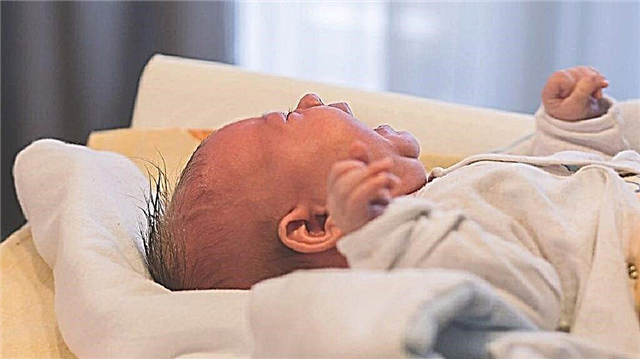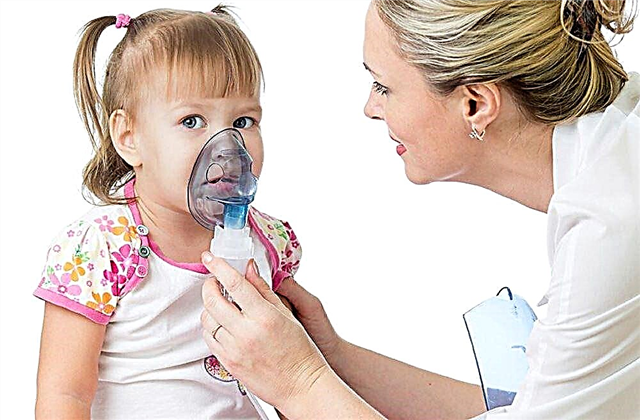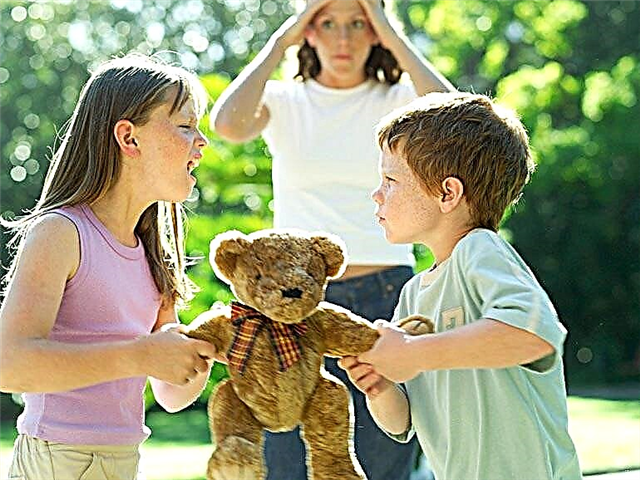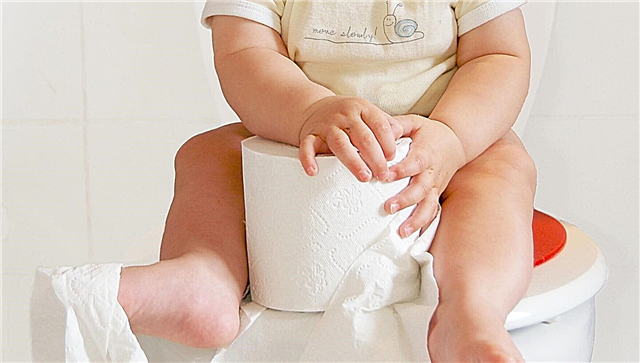Every parent wants his baby to sleep peacefully all night, not toss and turn and not wake up screaming or in a panic. But, unfortunately, many of them have to deal with the fact that the child does not sleep well at night or does not sleep at all. Can this phenomenon be considered the norm? Why does this problem occur? What can be done to normalize this process, how to help the baby? These are the questions that the pediatrician often has to deal with.
Normal daily regimen for a child under three years old: periods of sleep and wakefulness
Often the reason for this phenomenon is an ill-conceived daily routine, that is, the baby sleeps for a very long time during the day and does not have time to "get tired" by the evening.
Each person, starting from birth, should have their own daily routine. That is, he must perform certain actions throughout the day in time. This so-called schedule includes: sleep, bathing, wakefulness, intellectual and physical activity, hygiene procedures. Therefore, if you collect all these factors and draw up a certain schedule for the baby, taking into account his individual biorhythms, this will greatly facilitate the life of parents.
Features of the daily routine
In order to draw up a daily regimen, you need to know that every child must:
- be individual. That is, when developing it, it is necessary to take into account the age characteristics of the baby, habits, biorhythms;
- build on a compromise (should be comfortable for the whole family and at the same time meet the physiological needs of the baby);
- be consistent (actions should be performed in a constant sequence so that the child develops a skill faster and develops a cause-and-effect relationship);
- be flexible. That is, to change depending on how the baby grows up, and on how his needs change. And also take into account the state of health of the baby, his mood and physical activity.
At a newborn age, the baby spends 50 - 70% in the active phase of sleep (this is the reason for his rapid awakening). With the growing up of the crumbs, the duration of such a dream is shortened, and the deep phase is lengthened.
The benefits of sleep for a child
Sleep is an important physiological process that is necessary for the baby to grow and develop according to age, as well as for the normal functioning of his central nervous system and metabolism.
While the baby is sleeping happens:
- the production of somatotropic hormone (STH) by the pituitary gland - "growth hormone";
- restoration of the activity of all organs and systems;
- adaptation of the body to the change of day and night;
- activation of T-lymphocytes (these cells are involved in the fight against viral infection);
- metabolism and assimilation of various substances by the tissues of the brain, maintaining the functioning of the nervous system.
If this mode is formed correctly, then:
- the physical and neuropsychic development of the child is age appropriate;
- immunity increases;
- the crumbs improve mood, activity, efficiency;
- this is the prevention of overwork;
- such children are more organized and collected with age;
- adaptive processes to stress or to a new environment (to kindergarten, school) increase.
Drawing up this regimen for an infant is a rather time-consuming process, because, first of all, his need for the number of feedings, hours of sleep and wakefulness changes. But with the systematic performance of the same procedures at about the same time, the crumbs will have a regime.
Each age group corresponds to certain time intervals that the baby should spend while awake and asleep.

Time to sleep and stay awake
| Baby age | Time allotted for wakefulness | Sleep hours | ||||
| The maximum duration of this time between dreams, in hours | Number of daytime dreams | Total duration of each daytime sleep, in hours | Night | Number of hours per day | ||
| Newborn - 3 months. | 1 – 2. | 4 – 5. | 2 – 2.5. | 10 - 12 (but the baby wakes up to feed every 3 hours). | 18 – 22. | |
| 3 - 6 months. | 1.5 – 2. | 4. | 1 – 2. | 10 – 11. | 16 – 17. | |
| 6 - 9 months. | 2 – 2.5. | 3. | 1.5 – 2. | 9 – 10. | 14.5 – 15.5. | |
| 9 - 12 months. | 2.5 – 3.5. | 2. | 1st dream - 2.5; 2nd dream - 2. | 9 – 10. | 13.5 – 14. | |
| 1 year - 1.5 years. | 3.5 – 4.5. | 2. | 1st dream - 2 - 2.5; 2nd - 1.5. | 9 – 10. | 13 – 13.5. | |
| 1.5 - 2 years. | 5.5 – 5.5. | 1. | 2.5 – 3. | 10 – 11. | 13 – 13.5. | |
| 2-3 years. | 5.5 – 6. | 1. | 2 – 2.5. | 10 – 11. | 12 – 12.5. | |
Many associate the appearance of a baby in the family with bad sleep, not a rash, overwork, but with a properly created daily routine, these problems can be avoided.
Causes of sleep disturbance in a child
There are a huge number of factors contributing to the appearance of this symptom.
- Colic. This phenomenon can torment babies from the first week after birth up to four months of age. In this case, there is a sudden attack of crying, arching the back, pulling the legs to the stomach. To eliminate them, it is necessary to find out the cause and eliminate it.
If you suspect colic, you should contact your pediatrician to find out what contributes to their appearance and how to eliminate them.
- Teething. This phenomenon begins to bother children most often at six to seven months of age and older. At the same time, the baby becomes restless, crying, tossing and turning, and does not sleep well.
If the pediatrician confirms this reason, he may prescribe special medications (in the form of ointments, tablets, etc.) that will help alleviate this condition.
- Childhood fears. At the age of one, children may develop the first phobias, because during this period the imagination is actively developing.
Watching films, cartoons, programs with aggressive manifestations is not recommended. Because this can contribute to the appearance of nightmares in the crumbs.
- Emotions. Negative emotions, fear can contribute to the appearance of this symptom. Even newborns feel and sense the emotional environment in the family, so parents need to try as much as possible to make it favorable.
An hour or two before bedtime, it is recommended that the baby be engaged in a calm activity. For example, looking at a book.
- Physical discomfort. That is, these manifestations can occur due to uncomfortable pajamas, synthetic bedding, pillows, toys, and other reasons.
- Uncomfortable microclimate. This can happen because the room is too hot, cold, or too dry.
Before you start laying the crumbs, it is recommended to ventilate the room and make sure that the temperature in the room is comfortable for sleeping.
- Diseases of organs and systems. The reason for this can be both otitis media, dysbiosis, and more severe pathologies - brain tumors, etc.
- Wrong daily routine (due to the fact that the baby has not spent energy, he cannot sleep).
It is recommended that the child be as active as possible in the first half of the day and moderately in the second.
- Age-related changes. In infancy, this occurs due to the predominance of superficial sleep over deep sleep.

How does a baby's sleep work?
Babies sleep differently from adults. In infancy, it is distinguished by its sequence and duration. This is due to the fact that the organs and systems of the crumbs at this age still function imperfectly, especially the brain.
From the first minutes after the birth of a baby, painstaking work takes place in his head to adapt to the world around him. When he sleeps, these processes continue. Conventionally, two phases are distinguished in a dream: active and calm (the difference between a child's and an adult's sleep is in the duration of these phases).
If, during sleep, the sensors are fixed on the head and an electroencephalogram is carried out, then it can be traced that slow-wave oscillations are replaced by fast ones over time. After a certain period of time, they become slow back.
Based on this information, scientists have identified two phases.
- Fast (paradoxical), it is also called REM-period, which literally translates as "active eye movement". It can manifest itself as follows: active eye movement, twitching of eyelashes, increased breathing, increased heart rate, complete immobility of the body.
This phase is especially important in the newborn age. Since during this period the development of the brain is stimulated, nervous and psychoemotional tension is removed, new information is processed, the endocrine and emotional system is "rebooted", training and development of the brain takes place.
- Slow (orthodox) or its second name is non-REM, that is, "without active eye movement." During this period, there is a slow rotation of the eyeballs and a slowdown in all body functions.
In infants, this phase has two stages, and from the age of four months it has four stages (nap, falling asleep, deep sleep, very deep sleep). It is very necessary for babies, as it contributes to the full formation and normal physical development. During this period, the child's strength is restored, the energy expended, the body is overloaded.
The duration of the slow stage in children is not long, no more than 30 minutes, but with the stages of growing up, its duration increases, because the baby gets more tired.
If a baby wakes up during a period of deep sleep, he may be capricious, cry because he did not get enough sleep (the neurochemical processes that take place at this stage have not been completed).
By the age of three to four months, the phases of this process approach the adult, with the exception of the duration of its cycles. One circle includes four slow phases and one REM sleep. In infancy, its duration is on average 30 - 45 minutes, at the age of five years - about an hour, and at ten - twelve years it becomes like an adult.
What can affect it at different age periods?

Lack of sleep crumbs negatively affects his general, mental and physical condition, as it can contribute to the development of chronic disorder and even neurosis. Professor N. Krasnogorskiy found that a constant lack of even two hours of sleep in childhood contributes to poor weight gain and the development of behavioral reactions. One of them is the so-called "disobedience syndrome".
There are a lot of reasons that can affect this process at different ages. They can even be an incipient illness that is invisible to others, emotional shock, etc.
In infancy, the most common causes are: intestinal colic, uncomfortable climate, teething, separation from mom, hunger, thirst, improper regimen, diseases of organs and systems (for example, rickets, encephalopathy), etc.
From the age of one and a half to three years of age, more adult reasoning is formed, a feeling of fear, which can worsen the sleep of the crumbs during this period.
In the period from three to five years, the cause of poor sleep can be: stress, illness, disturbances in the daily routine.
At an older age, the following factors may be the reasons that contribute to the disruption of this process.
- Long-term use of various devices: tablets, phones, TVs. They must be turned off at least one hour before bedtime.
- The use of medications prescribed by a doctor that can contribute to the development of insomnia, sleep disturbance.
- Increased activity before going to bed.
- Drinking a lot of tea, coffee, chocolate, as these products have a high caffeine content.
- Eating food before bed, especially oily and spicy foods. The last dose should be at least one to two hours before bedtime.
- Unfavorable indoor climate. Before you put the baby to sleep or go to bed yourself, it is recommended to ventilate the room and create a favorable temperature in the room.
- Stress, quarrels, etc.
In adulthood, the time allotted for sleep should not be less than 8 hours and then it will be enough to restore strength.
We cope ourselves. What should parents do if a child does not sleep well at night
You can not prescribe the baby yourself sedatives that improve sleep and even vitamins, since self-medication can harm the child.
There are a lot of reasons that contribute to sleep disturbance, but what to do if a child wakes up at night and cries? What should be done to prevent this from happening?
There are some tips for minimizing violations:
- First advice. In the morning and before putting the baby to bed, ventilate the room for at least 15 - 20 minutes (thanks to the fresh air, it will be easier for him to breathe). The air temperature in the room should be no more than 24 degrees.
- Second advice. For restless teething in children, it is recommended to use special gels, antipyretic drugs (Nurofen, Ibuprofen, etc.), but only after examination and permission from a pediatrician.
- Third advice. The baby's diet should be balanced. It is recommended that it contains a lot of fresh fruits and vegetables. The kid should eat less starchy foods, and it is also necessary to exclude fatty and fried foods from his menu.
- Fourth advice. Let the child be as mobile as possible during the day or no later than two hours before bedtime. Active games contribute to more "exhausting" the crumbs and better sleep.
You should not let your baby frolic before going to bed, as excessive excitement worsens the process of falling asleep and the sleep itself.
- Fifth advice. Come up with a "ritual" before laying down (reading a fairy tale, light stroking on the back, watching a calm cartoon, etc.).
- Sixth tip. Do not shout at the baby and do not swear in front of him, as they perceive screams much sharper than adults.
- Seventh advice. Massage is recommended before an evening swim.
- Eighth advice. It is recommended for a child to sleep on hypoallergenic and high-quality materials (not feather pillows, synthetic and plush sheets). The mattress should not sink much under the weight of the child's body (it is better if it is orthopedic). He does not need a pillow until the age of two.
- Ninth advice. Late and nighttime meals are not recommended (except for infants under five months of age).
- Tenth advice. Be sure to walk with your baby every day in any weather.
- Eleventh advice. It is better to give toys to a kid in the morning so that he can enjoy them in a day and do not cry that he did not have time to play enough of them.
- Council twelfth. Train your baby to sleep separately in your bed and do not rock it.
Bathing promotes more restful and deeper sleep.
When do you need the help of specialists in a child's sleep disorder?
If, after following all of the above tips, the child does not sleep at night or sleeps restlessly, then you should definitely consult a doctor. Probably, the reason for this is more serious violations that only a specialist can detect and help to cope with the problem.
First of all, if this process is violated, it is necessary to contact a pediatrician, and he, if necessary, will already give a referral to the necessary narrow specialists.
Why does my child sleep poorly at night even after all of the above tips have been followed? The reason for this in children under one year old may be: rickets, umbilical or inguinal hernia, increased intracranial pressure, diseases of the spine, intestines, stomach, etc.
Symptoms for which it is imperative to seek help
Such symptoms, combined with sleep disturbances, require additional attention and examination, such as:
- snore;
- breathing problems;
- hyperactivity;
- violation of attention;
- impulsiveness;
- daytime sleepiness;
- headaches or pains with a different localization;
- somnambulism, etc.

Treatment
First of all, it is important to identify why the child does not sleep well all night? If necessary, therapy should be prescribed exclusively by a doctor, according to the identified pathology.
Why sleepless nights are dangerous for a baby
During the period of night sleep, growth hormone is produced - "growth hormone". When its production is disturbed, the physical and mental development of the crumb is disrupted.
If the baby has sleepless nights, this is fraught with:
- decreased activity during the day;
- mood swings, whims, crying;
- poor appetite;
- violation of the development of memory and thinking;
- malfunctioning of the immune system;
- a deterioration in the general health of the baby (headache, dizziness appears);
- lagging behind in development.
If these symptoms are ignored, the likelihood of developing diabetes mellitus, obesity, vegetative-vascular dystonia and other diseases of organs and systems increases.
The child is not sleeping. The main mistakes of parents
The main mistakes of moms and dads include:
- violation or absence of the regime;
- putting children to bed at a later time;
- violation of the sequence when performing the laying procedure;
- motion sickness crumbs;
- clarification of their relationship with a child;
- not taking into account age-related sleep needs;
- overexcitation of babies before bedtime (this can happen due to active games in the evening);
- finding many distractions near the crumbs (flashlight, musical toy, etc.).
Conclusion
Parents dream that their child sleeps, as they say, "without hind legs" all night and quickly fall asleep. But not always and not everyone succeeds in doing this. There are a lot of reasons that contribute to sleep disorders. However, with early accustoming the baby to the regimen and following the above tips, problems can be avoided.
In the event that the baby's sleep is significantly disturbed up to its complete absence, it is imperative to consult a doctor. You should not self-medicate, as this can harm the baby.
Take care of your children! Get them used to the regime from childhood!
Bibliography
- Handbook of sane parents, E.O. Komarovsky, 2012.
- Textbook for medical universities "Normal human physiology", BI Tkachenko, 2005.
- Biological Rhythms and Sleep, L. Kupriyanovich, 1976.
- Book "Healthy Sleep - Happy Child", 2005.



